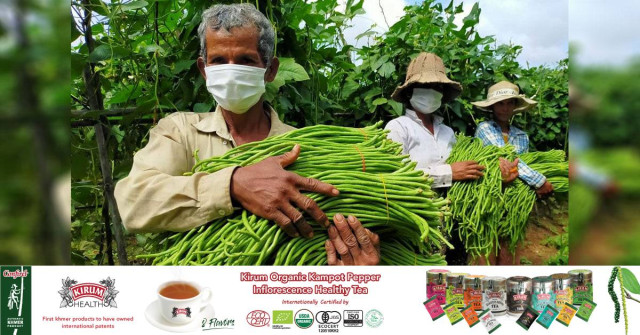A Diet Combining Fat, Sweet and Salty Severely Affects Health

- Lim Tola
- September 6, 2020 9:55 AM
A table covered with various dishes in which everyone digs in according to their cravings and tastes while discussing and clinking glasses with those sitting next to you: This is what a traditional Cambodian meal looks like.
Meat and fish either grilled on in soup, an assortment of vegetables fresh or cooked, condiments, fruit: Everything is there for a balanced meal without the excess of fat or sugar that could be harmful.
All nutritionists will tell you: A diet such as this makes it possible to prevent diabetes, cholesterol and hypertension—those silent killers that have been decimating the population in wealthy countries and now are striking people in developing countries.
And Cambodia is in the eye of the storm.
Pizzerias and other restaurants serving “Western” food targeting young active Cambodians abound. There, you will often see co-workers gathered around tables, each one glued to his mobile phone, eating pizzas and other semi-industrial concoctions saturated with sugar and fat and this, washed down with soft drinks that are literally bursting with calories
This is the notorious fatty/sweet/salty diet, a poisoned gift of globalization that is settling here surreptitiously under the guise of “modernity.”
World capitalism works like this: It feeds you for a bargain price bad food that makes you sick in order to later sell you at premium prices hours in gyms, medicine and treatments to cure you.
Of course, there still are numerous restaurants, including some that are part of present-day chains, which offer traditionally-prepared dishes and manage to also attract young people.
But the sweet-salty diet has a powerful ally: the Online.
Because, you see, when one eats glued to a mobile phone, one loses interest in whatever one is eating. One does not eat: One is getting full, that’s all. Moreover, during this filling-up operation that meals have become, the junk-food kings stuff consumers with advertising for their products through online ads designed for smartphones.
In other words, logged-in, mindless and conditioned, plus now addicted to fat, sweet and salty, the city’s young adult is getting ready for a great future in and out of hospitals and filled with medicine and intensive medical treatments.
Another worrying tendency for public health is the growing number of children that parents let eat junk food while watching their mobile phones. They are on the way to join those that the fatty/sweet/salty diet will turn overweight up to obesity.
Of course, traditional meals are still available. But young people’s addiction to online, which more and more locks them in a virtual world to the detriment of the real one, will make them disappear even faster in the city.
The silent killers have a promising future ahead of them.

















